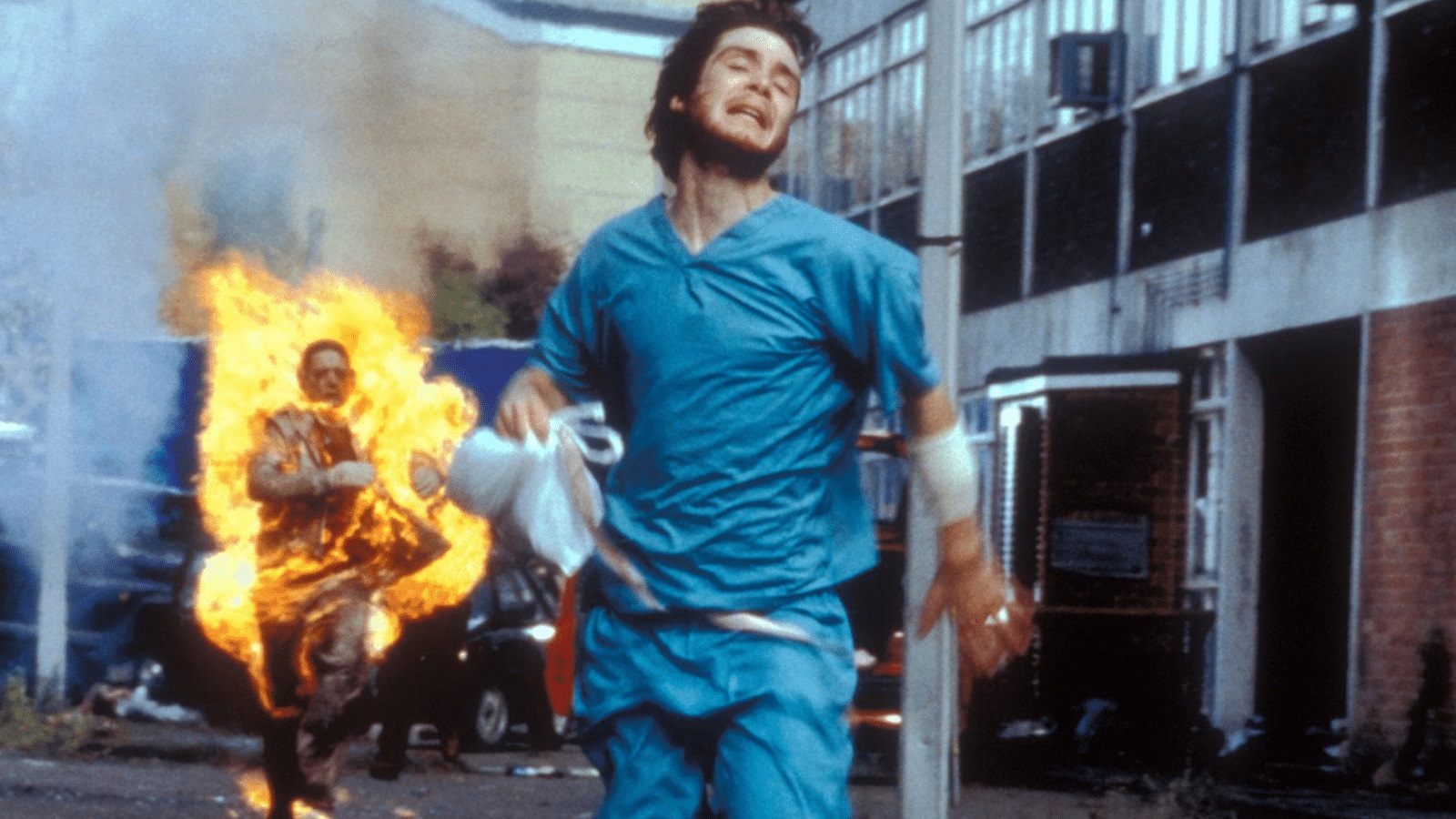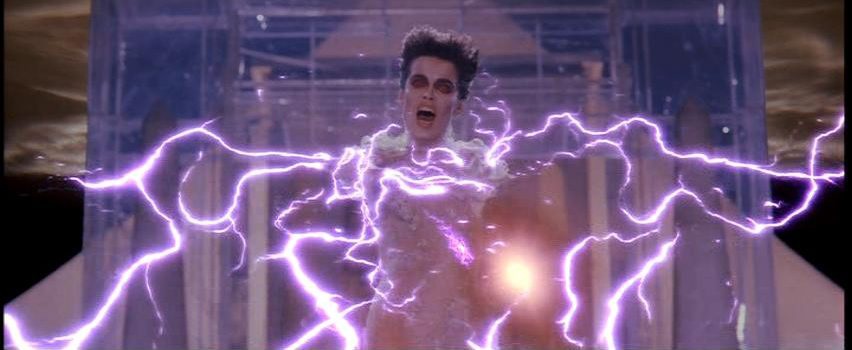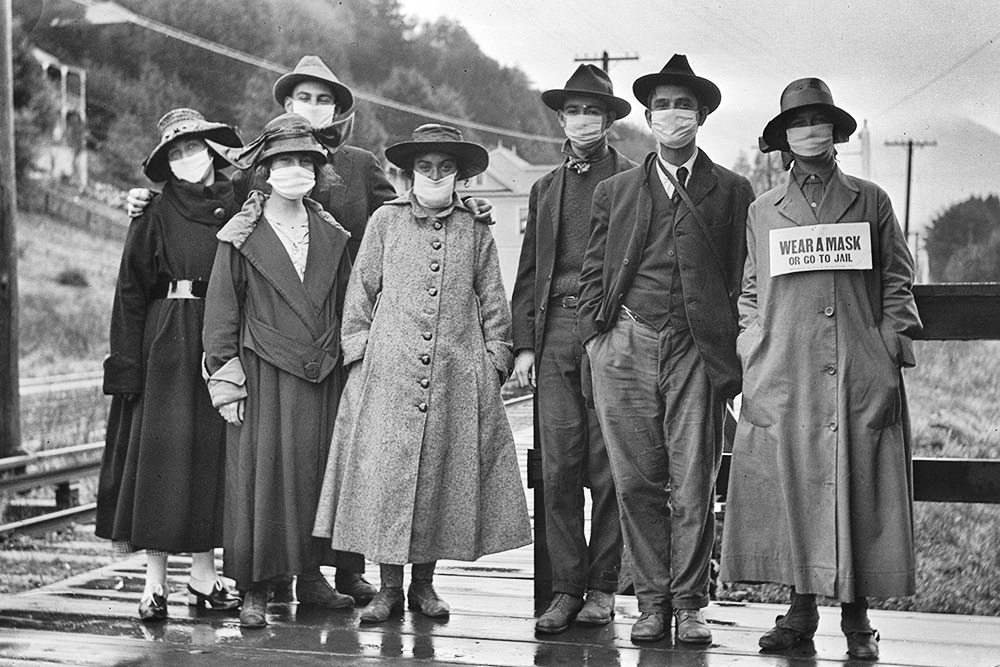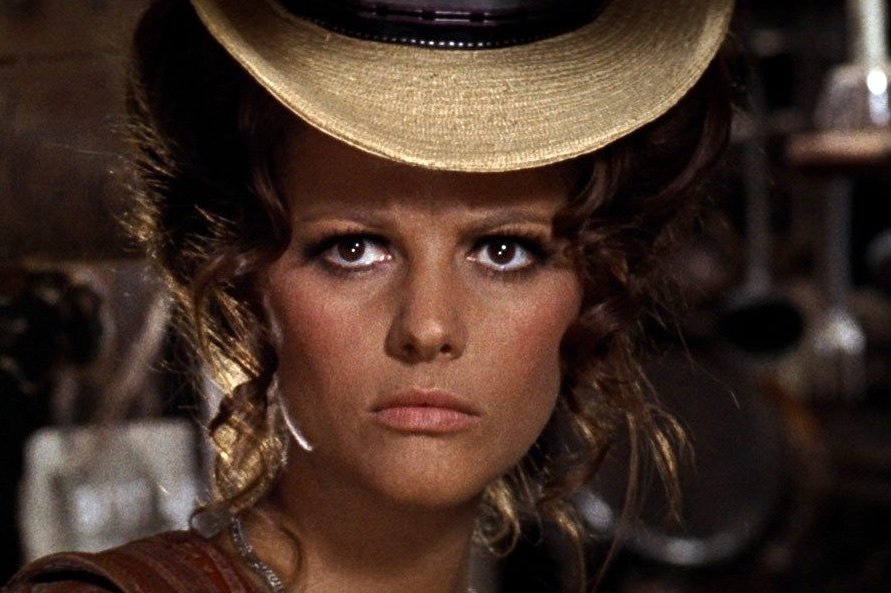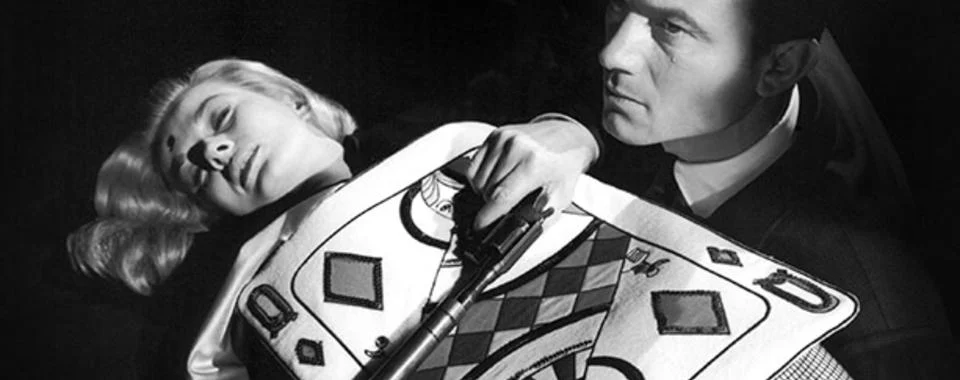
By Emad El-Din Aysha, PhD
Lieutenant Commander Data: “I wonder. What would Dr. Freud say about the symbolism of devouring oneself?”
Counselor Deanna Troi: “Data – sometimes a cake is just a cake.”
--- Star Trek: TNG,
“Phantasms”, S07E06
“I wouldn’t have seen it if I hadn’t believed it.”
--- Marshall McLuhan
Got into an elongated debate on Twitter some time ago concerning my review of Terminator: Dark Fate and my comments on the male gaze and I have to admit, I was humbled on a number of points. As luck would also have it I recently got a chance to watch some of Mackenzie Davis’s earlier movies, where she wasn’t the central character but did a stellar job nonetheless – That Awkward Moment (2014) and What If (2013). Gender issues popped up again. Then news came out about a reboot of the Matrix franchise and even more gender issues popped up, and in relation to my composite review of A Country Called Home and Bad Turn Worse.
Then I finally got around to reading the original literature on the male gaze, which I’d neglected for so long to my shame, and found two other movies worth exploring from that literature – Alfred Hitchcock’s classic Vertigo (1958) and the Japanese-French movie In the Realm of the Senses (1976). So, yes, its’ time for yet another follow-up!
Just let me preface this with an amusing anecdote. I’d once got asked to write a review article about either the actor Michael Douglas or the director Oliver Stone. I decided on Oliver Stone, and as I explained to the editor of the Egyptian movie magazine, a very decent woman, I’d much rather write about a man behind the camera – where I didn’t have to see him – as opposed to a guy in front of it. Going into the inner workings of a man’s brain was okay if you didn’t have to see any of it, its effects on his face or eyes or whatnot, so writing about an actor was a whole other kettle of fish. But, wouldn’t you know it, years after that ridiculous incident I realised that I actually had written an actor profile article, about Jason Statham. I called him the ‘thinking man’s action hero’. When it’s a physical guy who’s got no problems and solves problems through brute force, its’ okay, anything more deeply on the inside and its gets disturbing. Pluming the inner depths of the female psyche however was another matter entirely and teasing out those psychological traits through analysing appearance wasn’t threatening in the slightest.
It just goes to show that while the male gaze is very real it’s also less ‘lethal’ than we think and can be overcome with a healthy dose of movie criticism, along with a constructive dialogue between the sexes. Never mind a dialogue about sex, which is a lot more fun.
The ‘I’ has it
First off let me apologise for jumping the gun in my “Decoding the Male Gaze” article. I should have read the literature more deeply and profoundly the last time. Kudos again to the Twitter commentators. I found much to commend and enjoy in Laura Mulvey’s “Visual Pleasure and Narrative Cinema”, Peter Lehman’s “The Gift and The Keepsake – Castration Fantasies” and Hilde Hein’s “The Role of Feminist Aesthetics in Feminist Theory” and Susan Hayward’s “Beyond the Gaze and into femme-filmécriture: Agnès Varda’s Sans toi ni loi”, as gross as a lot of the subtopics are.[1] One big booboo I made concerned Oriental art. Japanese art, as it turns out, while very formalist and tending towards the abstract is actually very visual and very sexual – more on this below when I talk about Realm of the Senses.[2] Mulvey’s male gaze theory, as it turns out, is far more complicated than standard accounts about trashy commercialism – bikini clad babes advertising cars, compulsory boob shots in action and horror movies, Barbie dolls, etc. (One of the best contemporary illustrations of the watered down theory can be found in Suicide Squad with Harley Quinn described as someone more crazy and dangerous than the Joker but doing nothing, absolutely nothing, throughout except behave as an airhead stripper – to cite YouTube critic FILMENTO). It’s more foundational, dealing with Freud and his notions of scopophilia. It isn’t just the pleasure of the peeping tom voyeur spying out people’s dirty secrets, something you are supposed to grow up with as a child, but how the male director projects this on the screen, and not just in the form of the camera frame as I’d mistakenly thought. There is also the male protagonist who drives the story with the passive female tagging along, allowing the invariably male viewer to enjoy himself twice as much as before.
The eye and pleasure of looking and knowing and finding out is all terribly self-assertive, bringing back fond memories of childhood discovery and exploration along with recognition; having your own existence acknowledged in the eyes of a significant other, more often than not the mother figure. There’s also that relationship between knowledge and power, or seeing is believing, as other feminists and philosophers have always argued, from Plato onwards, to cite Hilde Hein and Susan Hayward.
EYE ON POWER: Mackenzie Davis, one of those rare beauties who prove that acting supplants appearance. Enough to make your head spin from… vertigo!
I can add that the human face has more muscles in it than any other part of the body and there is a universal language of facial expressions, of sorts, beyond culture and class. Freud therefore ‘may’ have had a valid point when he talked about the controlling, exploitative pleasure that the typically male artist takes in viewing-presenting the female subject-matter and dragging the male viewer into his voyeuristic peepshow world. I’m not so sure of the Penis envy-castration fears angle in Freud and Lacan however. Consulting an expert in the field, without naming names, Freud only ever used the term castration as an obtuse metaphor for childhood anxieties experienced by boys while growing up. The assumption was that in tribal societies the king would keep all the young damsels to himself, thus depriving young men of their biological rights, and no more. Nothing actually happened, not even so much as a circumcision. If anything Freud is okay with this became you need to restrain people sexually for society to function. With Lacan it’s even more obscure, to do with self-awareness of your body and of your image in the mirror, with language playing the key role in making you aware of your body as a separate thing with its own tangible existence beyond your sexual curiosity. He sees this symbolically as mirror-imaging. Castration comes in much later when this symbolic awareness through language replaces the traditional role of the mother in making you feel special and recognised, apparently. (!?!)
What a conceptual muddle. Be that as it may, as a movie critic and former professor, I have my own take on the self-same subject-matter. Men, generally speaking, are very dependent on their eyes. It’s been said, in cognitive research, that men prefer maps whereas women prefer to ask for directions. Women are visual too but the emphasis is on colour and physical mannerisms.[3] The evolutionary explanation for this, and I’m getting this from Sex in History by Reay Tannahill and The Red Queen: Sex and the Evolution of Human Nature by Matt Ridley, is that most of human history you had hunter-gatherer societies. Consequently men had to judge distance to hunt properly, throwing spears and firing arrows, while women had to discern colour and shade better for close up visualisation. They were gathering things like berries and mushrooms, to make sure they weren’t poisonous.[4] These hereditary tendencies – and that’s all they are, ‘tendencies’ – have transformed themselves into modes of behaviour and expectations over time. In the case of men getting the girl, the ‘prize’, was a natural extension of the hunt.
At school in computer class we took the maxim that man the hunter has become man the information-gatherer. (It seems that phrase is derived from Marshall McLuhan, interestingly). Again, man is looking for the prize and using his eyes to size things up. Sexual attraction for men is certainly very tied up to a woman’s appearance and particularly her face. With women it seems to be more how a man talks and moves, if you’ve read that classic by Neil Strauss, The Game: Penetrating the Secret Society of Pickup Artists. It’s also a truism that men get stimulated, ‘need’ to get stimulated, before sex through some visual medium, whereas this doesn’t work with women. Something men usually find out the hard way. (Watch the Fresh Prince of Bel-Air, the scene where Will Smith is using Nine and a Half Weeks on a girl. I assume there are multiple instances of this worldwide since Fifty Shades of Grey came out, a movie I thankfully haven’t watched).
Then there’s culture and historically conditioned experiences to contend with. The idea of seeing is believing is a Western eccentricity, following the print-press revolution where knowledge is transferred to you visually through books.[5] (I explained this once to a Canadian friend, a really cool philosophy professor). If you’re an Arab you still live in a world of verbal transmission and hearsay and word of mouth where people only believe things because enough people are ‘talking’ about them. That was actually the fulcrum of Marshall McLuhan’s idea of the global village, since knowledge in a village depends on direct experience or information transferred to you by word of mouth from those you know personally. And like I’ve said before, Islamic art and culture is non-representational. It’s so non-representational in fact that erotica in Arabic history was always in written form, not visual. I actually interviewed a sociologist on this point, an Egyptian who’d done studies on pornographic consumption in the Arab world.
Remember that the image on your retina is actually two-dimensional and it is through experience and training that you become aware of distance and detail, visual training that is very lacking in our history, void as it is of icons and statues and paintings. Visual arts like theatre didn’t develop in our history, even with access to Greek tragedy; hence Borges’s famous short story “Averroës’s Search”. (An Arabic poet actually cited that story for me!)
Cinema Obscura
We can add that Arabic men, notoriously, don’t like or trust maps and insist on asking for directions. Myself included, if you’re wondering. Oh, as for voyeurism, I grew up in an apartment and thank heavens Arabs don’t have horror stories about attics and basements in their folklore. So the male gaze theory, while commendable, still needs a lot of work and a tectonic shift in focus. Here’s an illustration, the misreading (in my opinion) of Hitchcock’s Vertigo, not to mention The Postman Always Rings Twice (1946) in the hands of other theorists. You have a passive female character in Madeleine Elster (Kim Novak), true enough, and you certainly come to love her and how classy and fragile she is, through the so-called protagonist’s eyes – John ‘Scottie’ Ferguson, the ex-detective played by James Stewart. But what’s really going on is that two men are trying to possess her, the ex-detective and the concerned husband who hires him, Gavin Elster (Tom Helmore). Visual pleasure here isn’t the real issue. The issue is what Madeleine Elster is a stand-in for, her and her ‘Spanish’ ancestry, brought out paradoxically with her platinum blonde hair. Again woman as land with the detective as the guardian class whereas her husband, the man entrusted with managing her affairs, is a predatory charlatan preying on her best interests.
Remember that in film noir the private eye is usually seen as more dependable as a protector of society’s interests than bureaucratic cops and politicians beholden to vested interests and the ruling class. (Watch Chinatown and Lord of Illusions for contemporary illustrations of this). Hence, Gavin who has an Englishy accent reminiscent either of the British Empire or the evil East Coast and doesn’t like the city that San Francisco has become, compared to what it was like during his reckless, power-abusive youth. The only catch is that nobody, the two male figures, is bothering to ask what Madeleine wants or needs. She later turns out to be a phoney, a working girl by the name of Judy Barton that had to cooperate with Gavin in his plot to kill and inherit his wife, cooperate to insure her economic security in a supposedly free and competitive world where you can rise to the top through hard work and talent. (See That Awkward Moment below). The movie is about a country, a generation, coming of age; is it a coincidence the place Judy lives in is called The Empire Hotel? The original Madeleine was descended from a Spanish woman who had her daughter taken from her by her husband because rich men back then had the power to get away with such things. Things technically have changed with American democracy and liberalism but it’s still a cold, harsh capitalist world. Contrast Madeleine to the ex-detective’s lady friend, Midge Wood (Barbara Bel Geddes), an artist-fashion designer who makes what today would be called a wonder bra. Makes you wonder who is the more feminist of the two, doesn’t it?
Add to that that one of the whole reasons we like and identify with Scottie is the loveable relationship he has with Midge; he can pour his heart out to her, about his weaknesses. He is the ‘injured’ protagonist, after all, captivated with a sense of guilt – a cop died because of his latent fear of heights – who is the ultimate rube in the movie, having been taken advantage of by the very man who hired him, the man his mistakenly thought he was his friend. I can agree with Mulvey’s reading of Marnie and Rear Window, but not Vertigo. And Midge has a tomboyish quality to her but still falls into the feminine trap of jealousy when she finds John Stewart’s character getting enamoured with Madeleine.
The thing that reveals Judy Barton’s true identity is the jewellery she keeps from the slain Madeleine; diamonds are a girl’s best friend and the way to buy their good favour, so to speak. The get-rich-quick-or-die-trying mentality hard at work fouling things up for everybody. The title of the movie, Vertigo, for so long a mystery is meant to signify a world turned upside down where men are no longer in control and trying to reassert that control. That’s why Jim Stewart’s character, when he encounters Judy, tries to force her to look like Madeleine, with the same hairstyle and clothes. In his case it’s more to do with guilt, failing as a cop and protector, but he’s being used as a mouthpiece for this topsy-turvy world, while the husband is the rentier capitalist who inherits his wealth instead of working for it.[6] Sadly this arrangement of push and pull is untenable and the woman trying to be independent, Judy, commits suicide in the end, the only way out if you’re a plaything of men. This is an indictment of the male gaze, not a confirmation of it.
IMMORTALITY IN THE MAIL: Lana Turner as Cora [left] and Harley Quinn (Margot Robbie). Film ‘noir’ femme fatales just don’t work in technicolour do they?!
Much the same could be said for The Postman Always Rings Twice, incidentally. It’s true that we ‘see’ Cora (Lana Turner) through Frank Chambers’ (John Garfield) eyes – and enjoy ourselves mightily as a consequence too – but Cora is the classic femme fatale who gets the unwitting supposed protagonist to do her dirty work for her, to murder her husband Nick Smith (Cecil Kellaway). She also has more staying power than Frank when it comes to testifying under pressure., You’ll also notice that Nick, the cold blooded unjealous husband prototype, is a penny pincher who makes money without producing anything new and different; bloated like a landlord who collects rent. He's also a foreigner (Canadian) and speaks with an ‘Englishy’ accent. (Americans are still angry at the British after all this time, and angry at the Commonwealth to boot). And just because the narrative in Vertigo is being told visually with lots of beautiful shots of a beautiful woman and beautiful city, doesn’t necessarily mean anything bad. Not to forget that two can play at that game, contra the female gaze argument. There is a girls-spying-boys voyeur scene in Now and Then (1995), the male gaze sketch scene in Blue Is the Warmest Colour (2013), not to forget lesbian exploitation and murder in Jordan Scott’s Cracks (2009), adapted from Sheila Kohler’s novel. Moreover, looking at things from a non-involving distance ‘can’ actually be a good thing.
VOYEUR POLITIK: The dearly departed spy novelist John le Carré. For some reason when men are displayed horizontally, its’ not nearly as ‘involving’!
Watch Chris Nolan’s mini-film noir movie Following (1998) and you have the struggling author no longer being content with following and ‘observing’ people, but getting involved in the heists of one of the people he follows – an apparent burglar – and in the process falls in love with a woman he’s following and imagines he’s saving her from her abusive, controlling gangster boyfriend. In the end he’s the one who is had, by the burglar and the so-called noir girl, and she herself gets killed, much like Judy in Vertigo. Guess there is something to be said for being ‘aloof’!
NOTES:
[1] Laura Mulvey, “Visual Pleasure and Narrative Cinema”, Film Theory and Criticism: Introductory Readings. Eds. Leo Braudy and Marshall Cohen. (New York: Oxford UP, 1999), pp. 833-44, Hilde Hein, “The role of feminist aesthetics in feminist theory”, Journal of Aesthetics and Art Criticism, Vol. 48, No. 4, 1990, pp.281-291, and Susan Hayward “Beyond the Gaze and into femme-filmécriture: Agnès Varda’s Sans toi ni loi”, French film: texts and contexts, by Susan Hayward and Ginette Vincendeau, 2nd ed. (London: Routledge, 2000), pp. 269-280.
[2] Please see Lehman, Running Scared: Masculinity and the Representation of the Male Body, (Detroit: Wayne State UP, 2007), pp. 201-202, 219.
[3] For the consequences of this for filmmaking and male gaze theory, visual vs. sensory delight in men contra women, please see Janice Loreck, “Explainer: what does the ‘male gaze’ mean, and what about a female gaze?”, TheConversation.Com, 5 January 2016.
[4] This is alluded to in The Hunger Games (2012). Look at the mess Peeta makes while gathering berries, and previous he made a joke about hunting with Katniss’s bow and arrow; SF as the natural rejoinder thank heavens. Also the hunter-gatherer dialectic also seems to have worn out in antiquity, or else how do you explain Spartan men seeing arrows as dishonourable, as in the 300 (2006)? The historical Spartans were actually defeated once in battle by the Athenians, because the Athenians used ‘dishonourable’ arrows. So much for the male gaze. If the Spartans had won that battle men would have all become near-sighted!!
[5] This is what’s been called the substitution of the “reading eye for the medieval ear” (Mark Krupnick, “Marshall McLuhan Revisited: Media Guru as Catholic Modernist”, Modernism/modernity, Vol. 5, No. 3, 1998, pp. 108).
[6] This is a common motif in American cinema. Look at Lex Luthor in Superman Returns (2006) and his grander real-estate plans, and the dopy businessman in Out of Sight (1998).
[[TO BE CONTINUED]]

